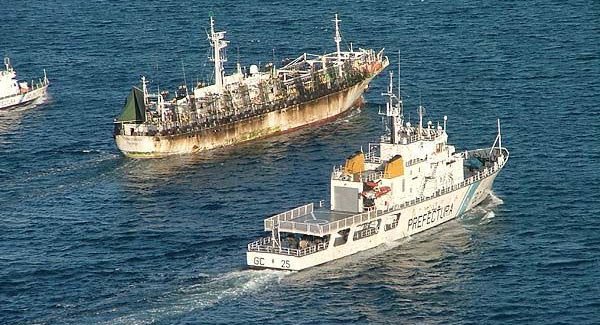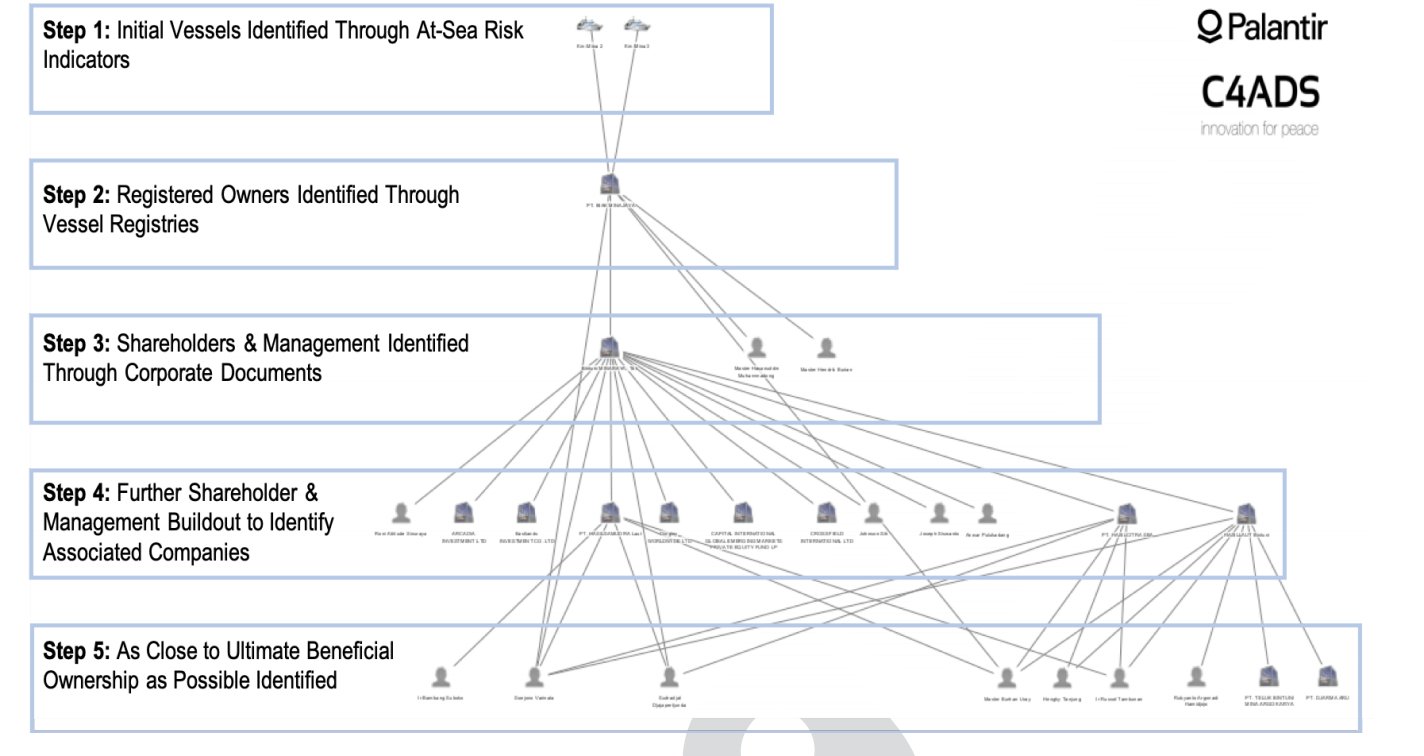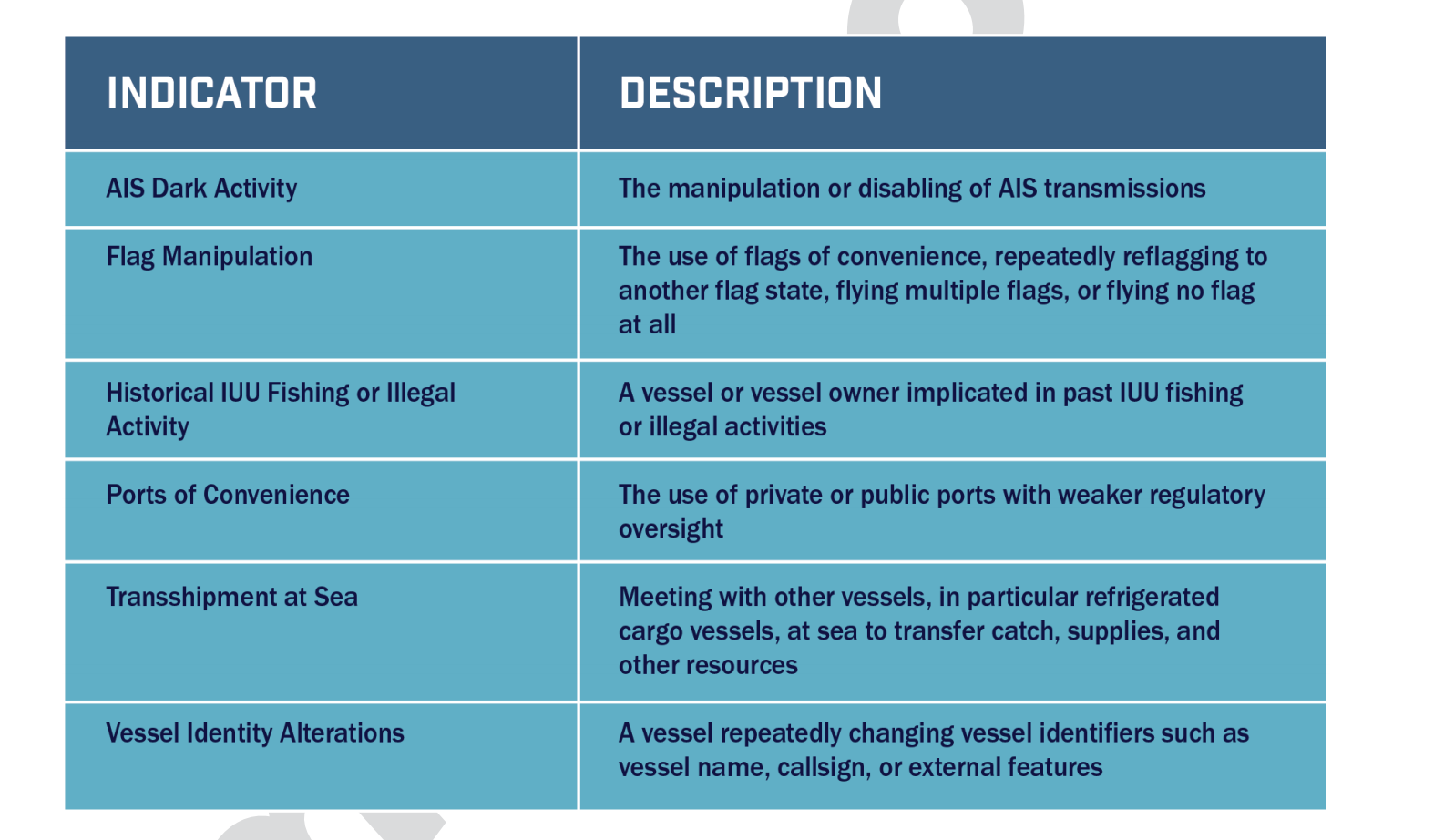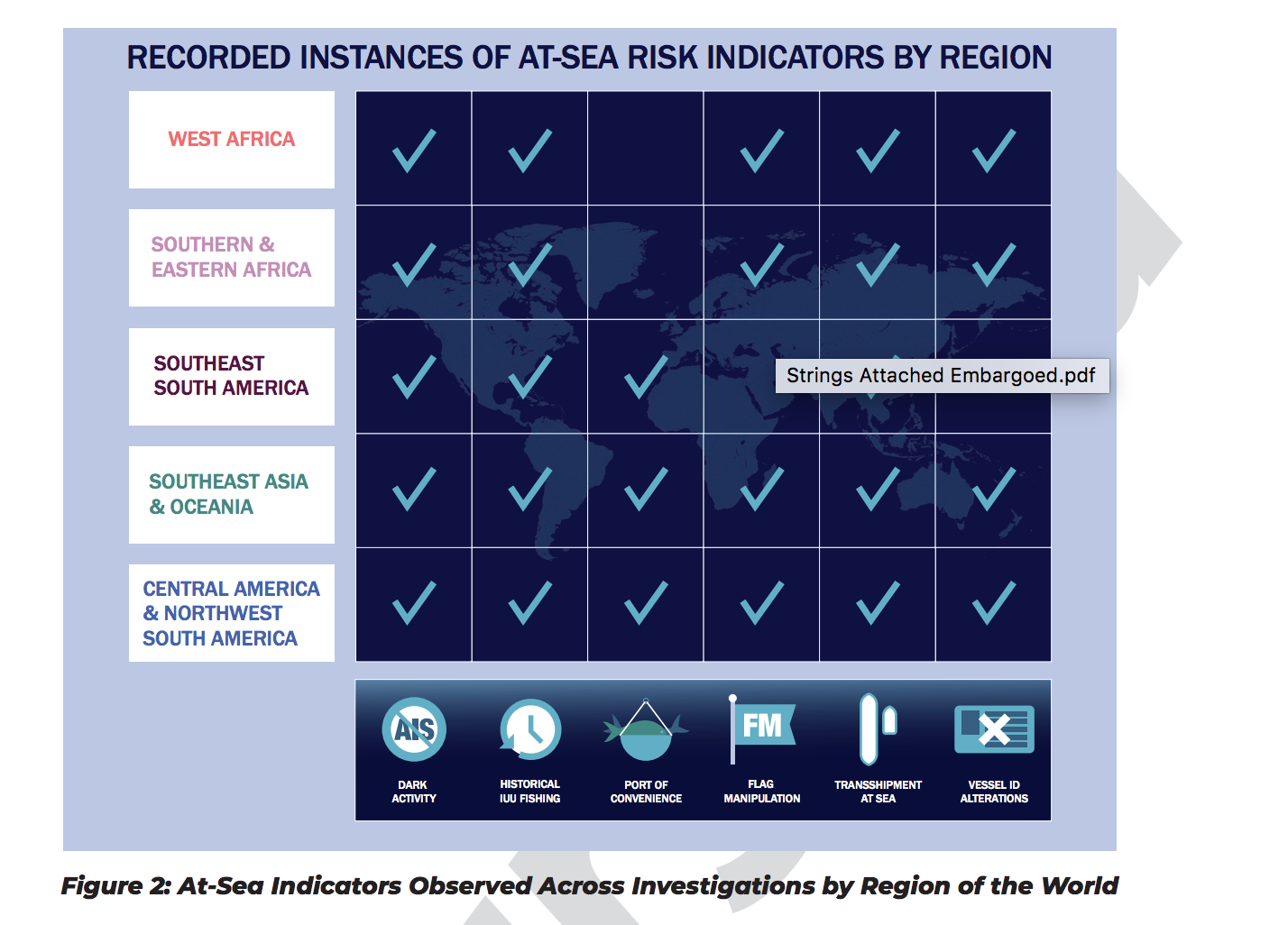13 Aug 2019: Report traces reach of 29 IUU fishing networks, identifies 150 vessels
(Information Source: Undercurrent News, By Jason Smith on Tue Aug 13, 2019, 18:33 BST)

Captured vessels Credit: Argentine Prefecture
Catching a vessel that's fishing illegally at sea is usually a job for a country's coast guard but the roots and reach of the network that makes the illicit activity possible and profitable go much deeper.
And it's only by tackling the "larger onshore system" responsible for illegal, unreported and unregulated (IUU) fishing, that the world will be able to get a better handle on a problem that costs an estimated $10 billion to $36.4bn each year, a new analysis suggests.
According to a report published Aug. 13 "Strings Attached: Exploring the Onshore Networks behind Illegal, Unreported and Unregulated Fishing", current anti-IUU methods are not as effective as they could be, according to the non-profit C4ADS, which wrote the report.
"Therefore, effective maritime domain awareness requires both at sea and onshore scrutiny to establish a link between IUU fishing vessels and the financial activity of onshore corporations that facilitate IUU fishing," the group wrote. "By framing IUU fishing as a problem linked to onshore crimes and facilitators, governments and law enforcement can rely on additional authorities to pursue the networks that sustain vessel activity at sea."
In its 52-page study, the group traced the reach of 29 IUU fishing networks, identifying 150 vessels involved in the practice.
The group heavily relied on open-source research such as public and media reports of IUU activity, blacklists provided by regional fishing management organizations and national regulators and records of "over 2,000 companies, individuals, and vessels that are directly or indirectly linked to these vessels", it said.
To carry out its analysis, C4ADS funneled its data into a network analytics platform, Palantir Gotham, to find patterns.
"To build out a network vertically, from vessel to ultimate beneficial owner, we use public records to uncover the directors and shareholders of companies that owned vessels engaging in IUU fishing. We then built out each network horizontally to identify associated companies and ships, linked through overlapping directorships, shareholdings, common places of business, and other unique identifiers," it said.

Researchers began at the fishing level by looking for what the group termed "at-sea risk indicators" such as the use of "ports of convenience", flag manipulation, past incidence of IUU and vessel name changes.

The authors found these indicators in ports all over the world.

Some areas such as the Southwest Atlantic Ocean, particularly high seas squid fishing areas just outside of Argentine territorial waters were a hotspot for one risk indicator in particular, the practice of turning off a vessel's radio communications known as the Automatic Identification System (AIS).
"These vessels, which are mostly flagged to China, South Korea, and Spain, frequently engage in periods of AIS dark activity and rely on reefers to continue operating at sea," the report states. "While this activity in itself is not illegal, it is high risk. These vessels exploit Argentina’s limited capacity to effectively monitor and patrol its [exclusive economic zone] EEZ."
The group ultimately hopes that its case studies will encourage authorities to develop policies that encourage greater transparency and accountability in the global fishing sector.
"It is clear that enforcement needs to adopt measures to more effectively identify and understand the major facilitators that are based onshore, including non-compliant flag states, the ultimate beneficial owners of fishing vessels, and other actors exploiting the fishing sector. Without the continued support of these key actors, IUU fishing vessels at sea would have fewer opportunities to land and launder illicit catch, diminishing the associated profits," the report states.




